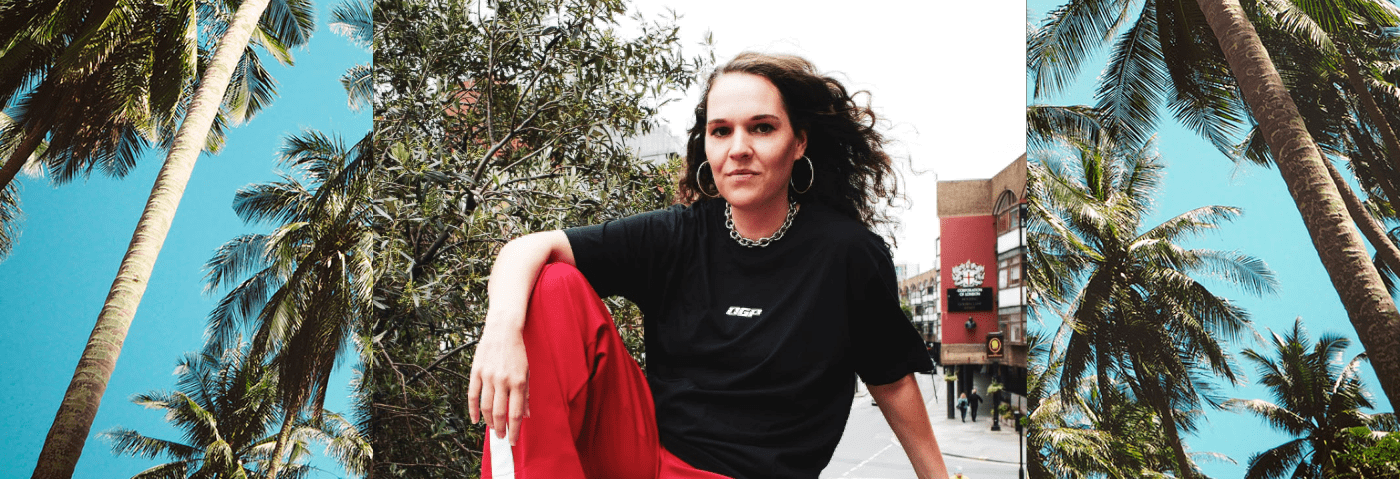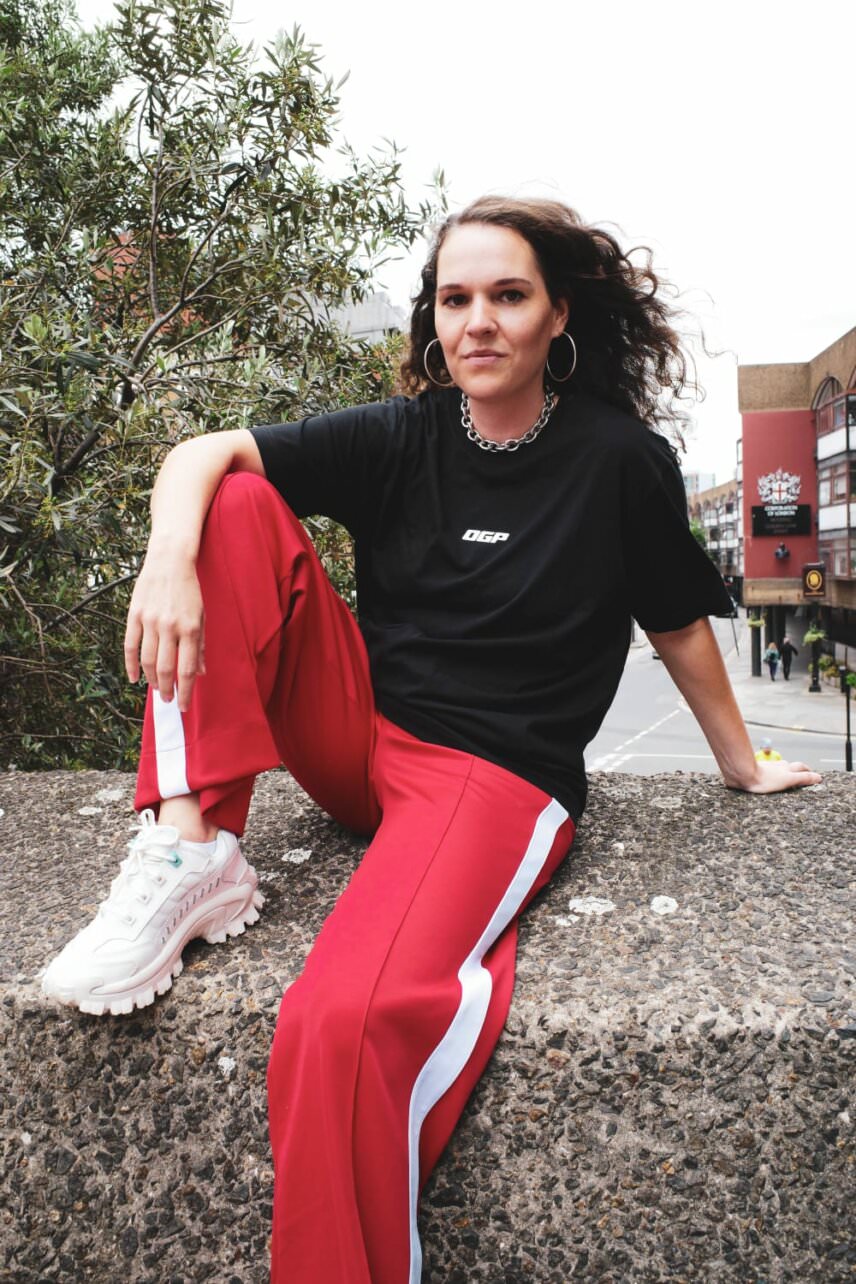Alice Austin is a music journalist focused on the intersection of politics and music, subculture, club culture and youth culture. She also has a monthly radio residency on Refuge Worldwide. Alice caught up with Clara Löffler to share her journey to becoming a music journalist.
Attack: How did you become a music journalist?
Alice: I’ve always wanted to be a journalist, but I didn’t study it. My first five years of working were in marketing and PR, which had nothing to do with music. As a young woman in a creative environment, I felt very disrespected. I felt like such a joke in these male-dominated spaces. In one of my design agencies, there were no women above the management level at all. One of my bosses would hold his fingers up when a woman walked into the office to rate her out of ten. When I stuck up for myself, I was told that I was boring and I need to lighten up.
The environment around me was extremely oppressive, so I decided I couldn’t cope anymore and moved from London to Berlin. I just absorbed what was going on there, the creativity, the music and the enthusiasm of my friends. I then started to write for free for a music magazine and that’s how I would get on the guestlists of festivals all around Europe.
Another factor male editors may not consider when hiring female music journalists, is the added element of danger in club spaces… one thing that I would have appreciated is an element of training for the collectives and crews… sadly, we live in a world where women do need extra protection.
In Albania, at Kala Festival, I met the editor of Mixmag. I sent him an e-mail when I got back and he sent me on my first assignment to Portugal. I was so happy, I couldn’t believe it. Most of the people who’ve given me opportunities in music have been men. When I got into music journalism in 2017 it was a bit of a turning point for editors. Laura Aha from Groove Mag had just called out sexist remarks from Giegling, and I think the feeling male editors had was – if we’re here in the top jobs, we at least need to start making sure underrepresented writers are getting opportunities. The industry woke up to this even further in 2020 after the Black Lives Matter protests.
Is it more difficult to be a female than a male writer in this industry?
It’s hard for me to tell because I’ve never worked full time inside a music magazine, but I’ll give you an example from the other week. A well-established house artist wanted a music journalist to write the press release for his new album. I was set to interview him when I got an e-mail from his manager. And guess what? They’d decided to go with a different journalist.
My first thought was I bet they’ve gone with a man. One that’s written about techno and house music for years, a man who has this punchy style that they like. Maybe they even know each other. I might be wrong and I hope I am, but if not then that’s where the inequality comes in. Women haven’t had the opportunity to write about these things for years, because they haven’t been selected.
The reason why I pushed ahead was that I read this statistic that men will apply for a job if they meet only 60% of the qualifications, while women will apply only if they meet 100% of the qualifications.
If artists keep choosing men to write about their work or support them on tour, it’s never going to change. It’s always going to be the same-old voice and sound. That’s why we need diversity and not just in music alone but in every field. That’s why we need people from all walks of life, all backgrounds, ethnicities and genders because that brings something fresh.
One thing I’ve struggled with since I started working as a music journalist is the feeling of imposter syndrome, which derives from the industry feeling so male. I felt very shut out from certain magazines. When I pitched to one particular magazine, it was either ignored or a hard ‘no’. But since then, the magazine hired a woman as an editor, I’ve sent them two pitches and they’ve both been accepted. I sadly don’t think that’s a coincidence. I don’t believe my gender was the reason my pitches weren’t accepted, but I think there was an element of gatekeeping. This seemed to have stopped now a woman is in charge.
Have you ever experienced sexist incidents with artists or colleagues?
I’ve been very fortunate not to have experienced overt sexism while on assignments. It didn’t come from the people I was directly covering anyway. I once met a DJ in 2020 who told me he thinks it’s a joke that women are being booked just because they are women. He told me that he doesn’t like their vibe, and women always think he wants to hook up with them. It was an appalling conversation.
I was very lucky to have come up as a journalist in Berlin because I believe it’s one of the most respectful environments in the club world. It’s easy to forget you’re female in spaces like Berghain or About Blank. I could just dance and no one would touch me; no one would bother me.
For one of my first assignments with Mixmag, the promoter kept calling me ‘love’ and ‘sweetie’ on email. The guy turned out to be very nice, but I do think men need to be careful about using gendered language. It puts us on edge. We need to know that we are absolutely equals from the get-go.
One of the problems is that we often have way less confidence than men. Women are afraid of coming across as arrogant, of coming across as big-headed, of coming across as pushy. We’ve internalised this feeling of being afraid to push forward.
Another factor male editors may not consider when hiring female music journalists, is the added element of danger in club spaces. I used to do a lot of scene reports for Mixmag and I would be by myself in a country I don’t know. I didn’t speak the language and I was with a crew of people I don’t know. One thing that I would have appreciated is an element of training for the collectives and crews. This would make sure that a person isn’t going home by themselves, and has a taxi to get back to their hotel. Whenever I was being briefed to go to these places there was never any mention of ‘look, this person is going to be looking out for you.’ Sadly, we live in a world where women do need extra protection.
I guess one important thing men need to remember is that women are on high alert all the time, in every aspect of our lives. Whether it’s walking home at night, in a club, in the office, or on dating apps. Even walking down the street and in our relationships – not to mention processing past traumas and internalised misogyny. We’re navigating this all day, every day, in every aspect of our lives. I think that’s something men probably just can’t get their heads around.
Do you feel responsible for covering more female artists because you’re female yourself?
I’m interested in writing about the intersection of politics and music, and subculture in unlikely places so most of the writing I do covers scenes which are male-dominated. I usually pitch a piece and then make sure that women are included afterwards. It’s never the other way round. Of course, there always are women and I always will include them, but it’s just a shame that it’s not so easy.
You do a real favour to yourself when you ignore that inner voice that says you can’t do something. You absolutely can.
I have a radio residency on Refuge Worldwide and every month I spotlight a different scene, genre or social issue related to dance music. I’ve interviewed Annabel Ross about misogyny in dance music, Zar from Daytimers about representation, and an artist called JonnyVicious about running an LGBTQ+ party in Kuala Lumpur, even though it’s illegal to be gay in Malaysia. I like to platform music from marginalised communities all around the world and feel everyone in the music industry should aim to boost other people in one way or another.
Do you have any tips for aspiring female music journalists?
One of the problems is that we often have way less confidence than men. Women are afraid of coming across as arrogant, of coming across as big-headed, of coming across as pushy. We’ve internalised this feeling of being afraid to push forward. When I was given my first assignment with Mixmag I felt like I couldn’t do it, I felt like I didn’t know enough about music.
The reason why I pushed ahead was that I read this statistic that men will apply for a job if they meet only 60% of the qualifications, while women will apply only if they meet 100% of the qualifications. I then decided to internalise my inner white man and forget about all those fears. I think that’s a real act of feminism. You do a real favour to yourself when you ignore that inner voice that says you can’t do something. You absolutely can.
Editor’s note: Alice stresses that she’s talking about anyone who identifies as female when she speaks of women/females.
Follow Alice Austin on Twitter.
Want to write for Attack? Get in touch.
FOLLOW ATTACK MAGAZINE
While You’re Here…
If you like this article you might enjoy our book The Secrets of Dance Music Production. It is available from the Attack store!
New customer? Use code ATTACK10WELCOME at checkout for a 10% discount!


